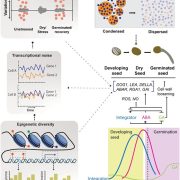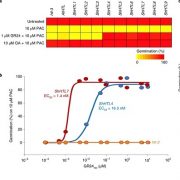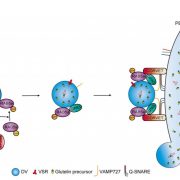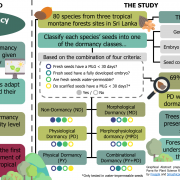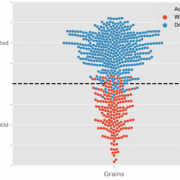The rice Rc gene affects seed survival under dry storage
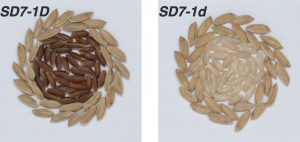 One of the current challenges in seed conservation is identifying the genetic basis that defines how long seeds can be stored before losing viability. This challenge is exceptionally crucial for rice, a cereal that feeds roughly half of the world’s population. However, most studies looking for determinant genes for seed longevity use warm and moist conditions unlike the dry, cool environment used for storage. Here, Prasad and colleagues look for potential genes associated with seed longevity by evaluating the variability in seed longevity of 20 rice accessions under elevated partial pressure of oxygen (EPPO). These experimental settings allow seeds to be tested under the temperature and humidity conditions that seeds encounter during storage while increasing the availability of oxygen, one of the molecules responsible for the aging process. The variation in the germination after the EPPO treatment was significantly explained by allelic differences in the gene Rc, which encodes a transcription factor involved in the synthesis of pro-anthocyanidin in the rice pericarp. Functional validation of this gene revealed that seeds from plants with a defective copy showed decreased longevity. As a result, this study provides exciting insights that might guide future breeding efforts toward longer-lived rice seeds. (Summary by Carlos A. Ordóñez-Parra @caordonezparra) bioRxiv 10.1101/2022.12.08.519629
One of the current challenges in seed conservation is identifying the genetic basis that defines how long seeds can be stored before losing viability. This challenge is exceptionally crucial for rice, a cereal that feeds roughly half of the world’s population. However, most studies looking for determinant genes for seed longevity use warm and moist conditions unlike the dry, cool environment used for storage. Here, Prasad and colleagues look for potential genes associated with seed longevity by evaluating the variability in seed longevity of 20 rice accessions under elevated partial pressure of oxygen (EPPO). These experimental settings allow seeds to be tested under the temperature and humidity conditions that seeds encounter during storage while increasing the availability of oxygen, one of the molecules responsible for the aging process. The variation in the germination after the EPPO treatment was significantly explained by allelic differences in the gene Rc, which encodes a transcription factor involved in the synthesis of pro-anthocyanidin in the rice pericarp. Functional validation of this gene revealed that seeds from plants with a defective copy showed decreased longevity. As a result, this study provides exciting insights that might guide future breeding efforts toward longer-lived rice seeds. (Summary by Carlos A. Ordóñez-Parra @caordonezparra) bioRxiv 10.1101/2022.12.08.519629


